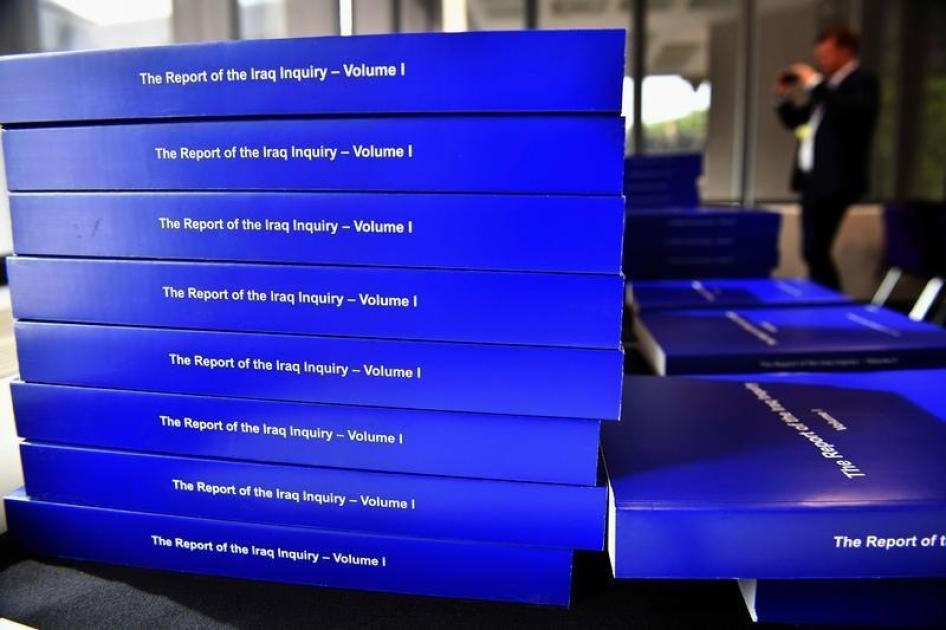The Chilcot Report, in its 2.5 million words, presents a pretty comprehensive account of the British occupation of southern Iraq from 2003 to 2009, mistakes made, and lessons to be learned. But the inquiry decided not to examine one crucial part of the occupation: detention.
This was unfortunate. Detention is inevitable when fighting a war (when prisoners are taken) or governing a country (administering criminal justice). British detention practices in Iraq have been the subject of years of criticism and allegations of serious abuses, resulting in two public inquiries. But neither inquiry looked at the overall picture of UK detention in Iraq. Clearly lessons need to be learned for the next time British forces detain people overseas.
Above all, the British government needs to accept that international and UK human rights law governs the actions of its soldiers, officials, and politicians anywhere in the world. Applying human rights law has real and positive consequences for detention. It means all detention should have a clear legal basis, namely specific grounds that justify a person’s detention. It means, in military detention in civil wars or during occupation, ensuring the old English legal principle of habeas corpus. That is that detainees are brought before an independent judge to rule on the legality of their detention – and check they are not suffering abuse. Applying human rights means opening detention centers to independent monitors – like the Inspectorate of Prisons - who make their findings public – and it means speedy, independent investigations when allegations of serious abuse of detainees are made.
None of this happened in Iraq, where thousands of Iraqis were detained for years on the sole authority of military commanders, on vague grounds such as “security,” and where hundreds of abuse allegations have still not been addressed more than a decade on. The only reason we even know about some of these abuses is because public inquiries were ordered after courts ruled the UK Human Rights Act applied to the actions of UK forces in Iraq.
The British government says it is outraged that human rights law can be applied to its actions overseas, and vowed to ensure the Human Rights Act does not apply past the white cliffs of Dover. This seems to be an ideological opposition – the government has not made any convincing arguments on how detention based on law and habeas corpus would be detrimental to military success. A refusal to learn lessons does not bode well for detention in future conflicts.







